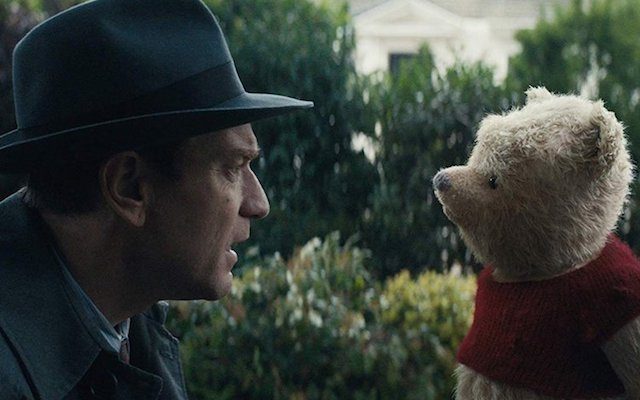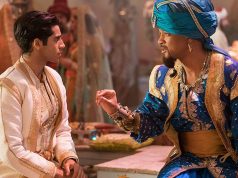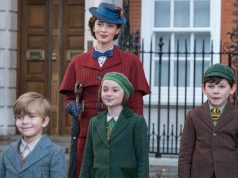
Disney’s “Christopher Robin” is not a biography of Christopher Robin Milne, the boy featured in his father A.A.’s “Winnie-the-Pooh” books. There was a movie last year, “Goodbye, Christopher Robin,” that told that story (more or less). This Disney version pretends we don’t know anything about the real Christopher Robin and tells a fictional story about the fictional boy in the books, who played with Pooh, Tigger, and the rest as a child, then grew up and forgot about them because he’s Too Busy Working and needs to be reminded of What’s Really Important.
Savvy readers may recognize this as the “Hook” formula, rendered in basic, gentle tones, deprived of any personality except in the form of Winnie-the-Pooh, a CGI creation voiced by Jim Cummings (who does an excellent imitation of Sterling Holloway’s classic Disney version). Our grown-up Christopher, played by Ewan McGregor, is a busy manager at a luggage manufacturer in postwar London who’s called to work one weekend — the very weekend he’s supposed to accompany his wife (Hayley Atwell) and young daughter (Bronte Carmichael) to the family’s country cottage! This means Christopher is a workaholic who does this all the time, so he will need a visit from his childhood friends to slap some sense into him.
Now, you know that the real Christopher Robin Milne grew up famous as the boy in the books, and that he had complicated feelings about his notoriety. The present Christopher, whose surname is Robin, didn’t have an author for a father, and the “Winnie-the-Pooh” books don’t exist in this world. Again, it is assumed that the audience is unaware of any “real” Christopher Robin, and every detail about his biography is changed.
Anyway, Pooh appears in London and takes Christopher back to the Hundred-Acre Wood, which is in Sussex (that’s about the only true detail left intact). Christopher is surprised that Pooh can teleport but not that he can talk: He always knew his stuffed animals were alive, though he’s also aware that this will seem crazy to other people and asks Pooh to “play naptime” when they’re bustling through London to the train station. (Why isn’t this funnier?) He reunites with the rest of the gang in the woods and regains their trust by defeating a Heffalump (i.e., by using his imagination), though not before getting angry with Pooh for being Pooh and yelling about how his life will be ruined if he loses “even one sheet” of the Important Papers in his briefcase.
There’s a lot of simple, on-the-nose dialogue like that, summarizing things in black-and-white terms so even the youngest viewers will know the stakes. The screenplay, full of empty platitudes, consistently takes the easiest route. At first I thought nobody had put any effort into writing it, but soon I realized it was the opposite problem. There are three credited writers (who all worked separately from each other), plus two more people credited with the story — this thing was created by committee, no doubt watered down and over-fussed-with by image-conscious Disney execs. Then it’s sleepily directed by Marc Forster (who has done this before: “Finding Neverland”), yielding a quasi-heartwarming family-friendly fantasy with only the bear minimum of whimsy.
C (1 hr., 43 min.; )





